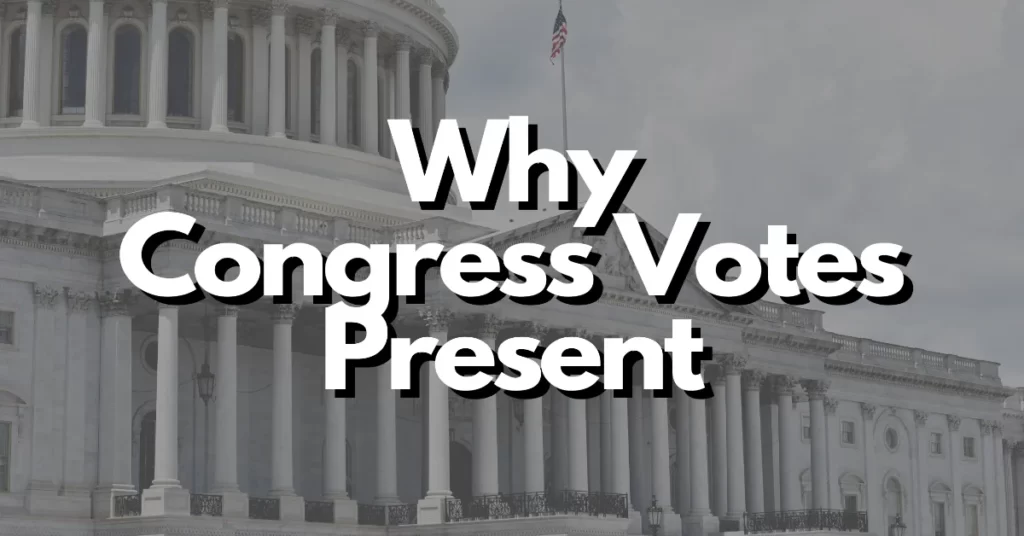The practice of members of Congress voting “present” on certain issues has been a subject of curiosity and criticism among political observers and the public. In this blog post, we will delve into the reasons behind why members of Congress sometimes choose to vote “present,” exploring the various factors and motivations that may influence this decision-making process.
Understanding the concept of voting “present” in Congress
In the United States Congress, voting “present” is a parliamentary procedure that allows members of Congress to abstain from voting on a particular issue or legislation. When a member of Congress votes “present,” they are indicating that they are neither in favor nor opposed to the issue at hand, and are effectively not casting a vote either for or against the measure.
Reasons why members of Congress may choose to vote “present”
There are several reasons why members of Congress may choose to vote “present” on a particular issue. One common reason is to signal neutrality or impartiality on a contentious or controversial issue. By voting “present,” a member of Congress can indicate that they are not taking a stance or favoring one side over the other.
Another reason may be strategic, where a member of Congress may choose to vote “present” as a procedural tactic or to delay or block the passage of legislation.
Additionally, some members of Congress may choose to vote “present” if they have a conflict of interest or if they are abstaining from voting due to ethical or moral considerations.
Historical and procedural background of voting “present”
The practice of voting “present” in Congress has a long history and is rooted in parliamentary procedure. In the U.S. House of Representatives, for example, the option to vote “present” is included in the rules of the House, and members can choose to use this option during floor votes.
Similarly, in the U.S. Senate, members have the option to vote “present” during roll call votes as a way to abstain from voting.
Criticisms and debates surrounding the use of “present” votes
The use of “present” votes in Congress has been the subject of criticism and debate. Some critics argue that voting “present” is a way for members of Congress to avoid taking a stance on important issues, and that it can be seen as shirking responsibility or avoiding accountability.
Others argue that “present” votes can be used as a procedural tactic to delay or obstruct the legislative process, and that it can contribute to political gridlock and inefficiency in decision-making.
However, proponents of “present” votes argue that it is a legitimate option for members of Congress to express neutrality or impartiality, and that it can be a strategic tool in certain circumstances.
Impacts and consequences of “present” votes in legislative decision-making
The impacts and consequences of “present” votes in legislative decision-making can vary depending on the specific context and circumstances. In some cases, “present” votes may not have a direct impact on the outcome of a vote, as they are effectively treated as abstentions and do not count towards the final tally.
However, in situations where the margin of votes is close, “present” votes can potentially affect the outcome of a vote, especially if they contribute to a lack of quorum or if they result in a tied vote that requires additional action or procedures to resolve.
Additionally, “present” votes can have political implications, as they can be interpreted as a statement of neutrality or impartiality, or as a procedural tactic, and may be subject to public scrutiny or criticism.
Conclusion
In conclusion, voting “present” in Congress is a parliamentary procedure that allows members of Congress to abstain from voting on a particular issue or legislation. Members of Congress may choose to vote “present” for various reasons, including signaling neutrality, strategic tactics, or ethical considerations.
The use of “present” votes has a historical and procedural background, but it is not without criticisms and debates. The impacts and consequences of “present” votes in legislative decision-making can vary, and they can potentially affect the outcome of votes and have political implications.
As the legislative process continues to evolve, the role of “present” votes in Congress will likely continue to be debated and scrutinized.

